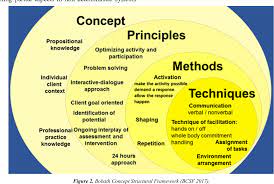J Family Med Prim Care. 2021 Nov; 10(11): 3983–3990.
A Pathak, V Gyanpuri, P Dev, N Dhiman
Background and Objectives:
The Bobath approach, also known as neurodevelopmental treatment (NDT), is a widely used concept in the rehabilitation of stroke patients with hemiparesis in many countries. This technique is being used since years all over the world; however, strong evidence of its usefulness is still not present. This review is aimed to find out its effectiveness based on the randomized controlled trials in the rehabilitation of stroke patients with motor disability and to compare it with other therapeutic techniques.
Materials and Methods:
A systematic literature search on PubMed Central, Science-Direct, Cochrane, Scopus, Clinical Trial Database, and Indian Clinical Trial Registry in English till 31st July 2021 was undertaken. The review is published in Prospective Register of Systematic Reviews (PROSPERO) with registration number “CRD42019125400.” Physiotherapy Evidence-based Database (PEDro) score has been used for the quality assessment of the studies. Randomized clinical trials that studied the comparative effect of the NDT/Bobath concept on motor activity outcomes and cognition/behavior in stroke patients in comparison with other rehabilitative techniques were included.

Results:
No strong documentation describing the effectiveness of this neuro-developmental treatment or its supporting neuro-developmental treatment in comparison with other advanced neuro-physiotherapeutic techniques has been found so as to consider it as the recommended treatment for post-stroke hemiplegia/hemiparesis. Methodological aspects of selected studies for further research are suggested.
Interpretation and Conclusions:
This study is inconclusive in determining the effectiveness of the Bobath approach for the movement rehabilitation of stroke patients. These results are similar to the results of previous reviews done on the same topic.
 Blog de Fisioterapia Fisioterapia
Blog de Fisioterapia Fisioterapia



